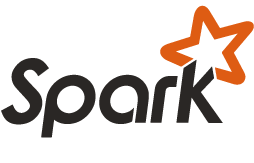#
# Licensed to the Apache Software Foundation (ASF) under one or more
# contributor license agreements. See the NOTICE file distributed with
# this work for additional information regarding copyright ownership.
# The ASF licenses this file to You under the Apache License, Version 2.0
# (the "License"); you may not use this file except in compliance with
# the License. You may obtain a copy of the License at
#
# http://www.apache.org/licenses/LICENSE-2.0
#
# Unless required by applicable law or agreed to in writing, software
# distributed under the License is distributed on an "AS IS" BASIS,
# WITHOUT WARRANTIES OR CONDITIONS OF ANY KIND, either express or implied.
# See the License for the specific language governing permissions and
# limitations under the License.
#
from pyspark.rdd import ignore_unicode_prefix
from pyspark.sql import since
from pyspark.sql.column import Column, _to_seq
from pyspark.sql.dataframe import DataFrame
from pyspark.sql.types import *
__all__ = ["GroupedData"]
def dfapi(f):
def _api(self):
name = f.__name__
jdf = getattr(self._jdf, name)()
return DataFrame(jdf, self.sql_ctx)
_api.__name__ = f.__name__
_api.__doc__ = f.__doc__
return _api
def df_varargs_api(f):
def _api(self, *args):
name = f.__name__
jdf = getattr(self._jdf, name)(_to_seq(self.sql_ctx._sc, args))
return DataFrame(jdf, self.sql_ctx)
_api.__name__ = f.__name__
_api.__doc__ = f.__doc__
return _api
[docs]class GroupedData(object):
"""
A set of methods for aggregations on a :class:`DataFrame`,
created by :func:`DataFrame.groupBy`.
.. note:: Experimental
.. versionadded:: 1.3
"""
def __init__(self, jdf, sql_ctx):
self._jdf = jdf
self.sql_ctx = sql_ctx
@ignore_unicode_prefix
@since(1.3)
[docs] def agg(self, *exprs):
"""Compute aggregates and returns the result as a :class:`DataFrame`.
The available aggregate functions are `avg`, `max`, `min`, `sum`, `count`.
If ``exprs`` is a single :class:`dict` mapping from string to string, then the key
is the column to perform aggregation on, and the value is the aggregate function.
Alternatively, ``exprs`` can also be a list of aggregate :class:`Column` expressions.
:param exprs: a dict mapping from column name (string) to aggregate functions (string),
or a list of :class:`Column`.
>>> gdf = df.groupBy(df.name)
>>> gdf.agg({"*": "count"}).collect()
[Row(name=u'Alice', count(1)=1), Row(name=u'Bob', count(1)=1)]
>>> from pyspark.sql import functions as F
>>> gdf.agg(F.min(df.age)).collect()
[Row(name=u'Alice', min(age)=2), Row(name=u'Bob', min(age)=5)]
"""
assert exprs, "exprs should not be empty"
if len(exprs) == 1 and isinstance(exprs[0], dict):
jdf = self._jdf.agg(exprs[0])
else:
# Columns
assert all(isinstance(c, Column) for c in exprs), "all exprs should be Column"
jdf = self._jdf.agg(exprs[0]._jc,
_to_seq(self.sql_ctx._sc, [c._jc for c in exprs[1:]]))
return DataFrame(jdf, self.sql_ctx)
@dfapi
@since(1.3)
[docs] def count(self):
"""Counts the number of records for each group.
>>> df.groupBy(df.age).count().collect()
[Row(age=2, count=1), Row(age=5, count=1)]
"""
@df_varargs_api
@since(1.3)
[docs] def mean(self, *cols):
"""Computes average values for each numeric columns for each group.
:func:`mean` is an alias for :func:`avg`.
:param cols: list of column names (string). Non-numeric columns are ignored.
>>> df.groupBy().mean('age').collect()
[Row(avg(age)=3.5)]
>>> df3.groupBy().mean('age', 'height').collect()
[Row(avg(age)=3.5, avg(height)=82.5)]
"""
@df_varargs_api
@since(1.3)
[docs] def avg(self, *cols):
"""Computes average values for each numeric columns for each group.
:func:`mean` is an alias for :func:`avg`.
:param cols: list of column names (string). Non-numeric columns are ignored.
>>> df.groupBy().avg('age').collect()
[Row(avg(age)=3.5)]
>>> df3.groupBy().avg('age', 'height').collect()
[Row(avg(age)=3.5, avg(height)=82.5)]
"""
@df_varargs_api
@since(1.3)
[docs] def max(self, *cols):
"""Computes the max value for each numeric columns for each group.
>>> df.groupBy().max('age').collect()
[Row(max(age)=5)]
>>> df3.groupBy().max('age', 'height').collect()
[Row(max(age)=5, max(height)=85)]
"""
@df_varargs_api
@since(1.3)
[docs] def min(self, *cols):
"""Computes the min value for each numeric column for each group.
:param cols: list of column names (string). Non-numeric columns are ignored.
>>> df.groupBy().min('age').collect()
[Row(min(age)=2)]
>>> df3.groupBy().min('age', 'height').collect()
[Row(min(age)=2, min(height)=80)]
"""
@df_varargs_api
@since(1.3)
[docs] def sum(self, *cols):
"""Compute the sum for each numeric columns for each group.
:param cols: list of column names (string). Non-numeric columns are ignored.
>>> df.groupBy().sum('age').collect()
[Row(sum(age)=7)]
>>> df3.groupBy().sum('age', 'height').collect()
[Row(sum(age)=7, sum(height)=165)]
"""
def _test():
import doctest
from pyspark.context import SparkContext
from pyspark.sql import Row, SQLContext
import pyspark.sql.group
globs = pyspark.sql.group.__dict__.copy()
sc = SparkContext('local[4]', 'PythonTest')
globs['sc'] = sc
globs['sqlContext'] = SQLContext(sc)
globs['df'] = sc.parallelize([(2, 'Alice'), (5, 'Bob')]) \
.toDF(StructType([StructField('age', IntegerType()),
StructField('name', StringType())]))
globs['df3'] = sc.parallelize([Row(name='Alice', age=2, height=80),
Row(name='Bob', age=5, height=85)]).toDF()
(failure_count, test_count) = doctest.testmod(
pyspark.sql.group, globs=globs,
optionflags=doctest.ELLIPSIS | doctest.NORMALIZE_WHITESPACE | doctest.REPORT_NDIFF)
globs['sc'].stop()
if failure_count:
exit(-1)
if __name__ == "__main__":
_test()
